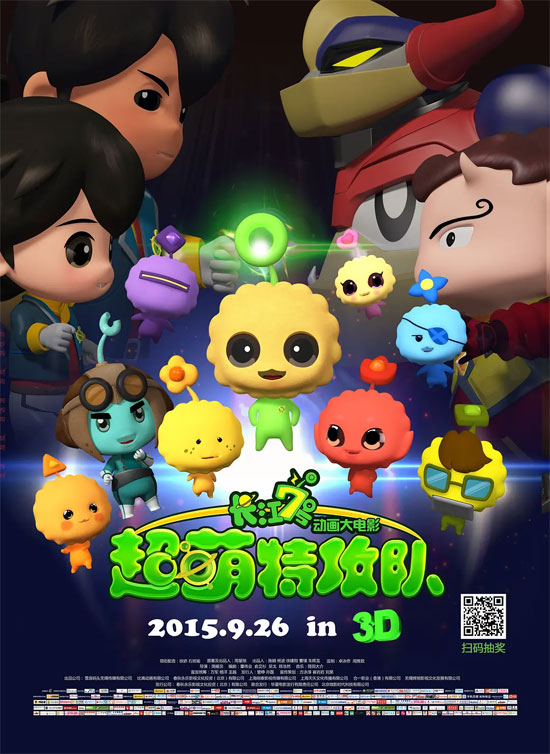Film Name: 长江7号:超萌特攻队 / CJ7: Super Q Team

This film left me somewhat disappointed. After No. 88 escaped Earth, I just couldn’t stay awake—I must have dozed off for a bit. This is one of the rare times I’ve actually fallen asleep watching an animated movie in the theater. When I opened my eyes again, several cute creatures resembling Qizi had already arrived on Earth. So perhaps I missed some crucial plot points, which means I can only comment on the parts I did catch.
Honestly, I’ve always been puzzled by this: when facing global crises and violent threats, should a child really be the one to save the day? As kids, we all learned about role models like Lei Feng and Lai Ning. Later, we still studied Lei Feng, but not Lai Ning—apparently because if a real forest fire broke out, should we encourage children to rush in recklessly like Lai Ning? Perhaps we once idealized these role models too much, and such idealization could be harmful to children’s psychological development and the formation of their safety awareness.
I haven’t seen an overwhelming number of Disney animations, but in my memory, early ones rarely featured children saving the world. In “The Lion King,” Simba must mature to fulfill his revenge. It wasn’t until the recent “Big Hero 6” that we saw children accomplishing rescues. However, Hiro’s crisis stemmed from his own invention—a crisis both intrinsically linked to him, compelling his involvement, and yet not quite on the scale of global survival. In other words, it wasn’t that dire.
In our animated films, when faced with alien invasions, we still favor plots where children battle alongside adorable pets—as if all adults, soldiers, and police worldwide had vanished. While these children become heroes, are they bearing burdens they’re fundamentally ill-equipped to handle? The imaginative outcomes of animation shouldn’t simply allow children to romanticize the real world, fostering blind aspirations. That’s actually unsafe.
What exactly does Zhou Xiaodi possess that could save the world? Does he have extraordinary intelligence? Does he know martial arts? In truth, aside from his fiery passion and a formidable pet, he lacks nearly all the qualities required to be a hero. At this point, the film should prioritize conveying the concept of self-preservation rather than encouraging reckless self-sacrifice.
Instead, the film should follow the approach of the original CJ7, focusing on the tender bond between Zhou Xiaodi and his father, and the evolving friendship between him and Qizi from initial understanding to deep familiarity. In my view, whether in Stephen Chow’s live-action films or the earlier animated series, the core of CJ7 lies in the profound bond between a working-class father and his endearing child. Qizai serves merely as a source of emotional solace, counterbalancing the harsh realities for this child. Its presence heightens the protagonist’s happiness and the audience’s sense of longing, preventing the film from becoming too heavy.
The film sacrifices these genuinely moving core elements entirely for a series of action sequences and grand spectacles that ultimately feel hollow and ephemeral. No matter how adorable the pet or how grand the scenes, they ultimately fail to touch the heart. Perhaps the film sought to break free from the formulaic expectations of its predecessors, but it succeeds only in creating numerous distractions while failing to establish any meaningful emotional anchors. As a result, the viewing experience oscillates between superficial engagement and disengagement.
Please specify:Anime Phone Cases » CJ7: Super Q Team 2015 Animation Film Review: Reflections on Children Saving the World